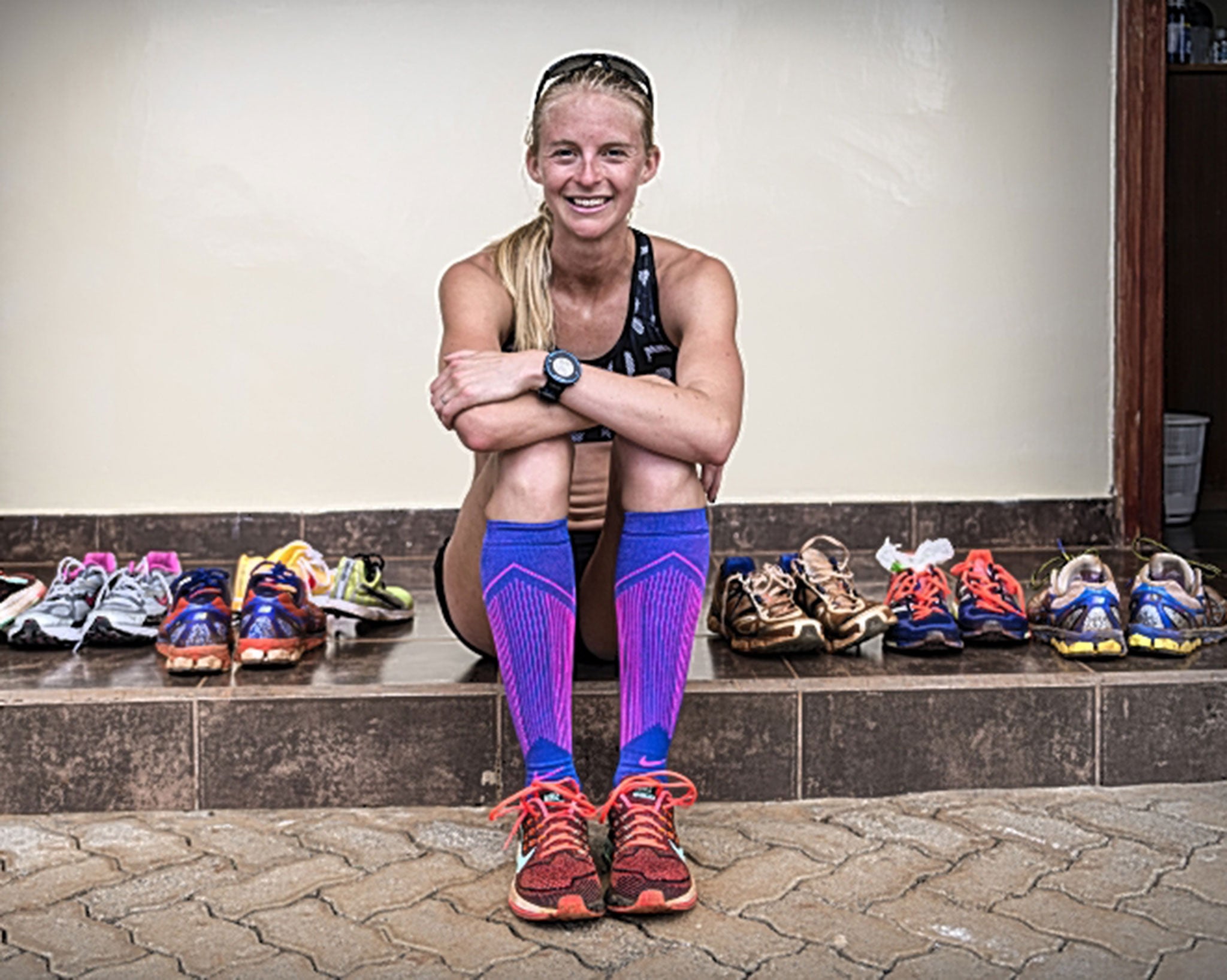Hannah England column: Altitude training is my idea of hell but I keep going back for the huge benefits
ON TRACK: Part of altitude training is retraining your brain to what is actually possible

Altitude training is a strange thing. Paula Radcliffe once tried to explain it to me like this: when you’re in oxygen debt and your body has this level of fatigue, your mind is telling you, “No, this isn’t possible, you need to stop, you have to stop, you’re going to damage your body”.
She says that part of altitude training is retraining your brain to what is actually possible. I have just finished a British Athletics training camp in Iten, Kenya, and when I was running up a hill I too was thinking, “This is not possible”. I’d be going a minute and a half slower than I would do if I was back at home and saying to myself, “This is the most painful thing, how is this good for me?”
And then you play the game – would I rather be at home and the answer is, yes. I’d much rather be running past a flat canal in Birmingham going back to my sofa. It’s funny the dark places you can go to. I just know I have to be grown up about it, I’ve had good results at Iten and I get very fit.
A lot of the other athletes talk about their favourite run there and I just don’t have one. For me, it is like a thing to be endured. I really struggle with the altitude and the hills, it just doesn’t come naturally to me. My idea of hell is being at the bottom of a hill run.
But I still keep coming back – this was my fifth camp – because I get very fit off it. I might get sick, my heart rate will go through the roof – hitting 190 beats per minute – and the breathing is very laboured. But there are aspects I enjoy – the group atmosphere and my time in the gym.
The problem is that I’m one of those athletes you might call a “non-responder”. There is no escaping from simple genetics – out here it is whether you’re able to produce your own natural hormones and extra red blood cells. My body does not really respond to being at altitude. Most people’s bodies say, “right, I’m here let’s throw red blood cells out like no tomorrow”, but mine’s “no”. It just doesn’t do it.
So there is a sense of dread before every run. Out in Iten there’s very few times you can ever say, “Tomorrow’s an easy day”. I was there for three weeks and there were two easy days – my rest days when I literally do nothing.
But there are still a lot of benefits. It is so extreme there but you get fitter working your lungs and heart harder and your fitness improves and you won’t be putting the same stress through your tendons on the high-altitude roads as you would at home.
It is also easier to get fit after an injury, which is what I’m doing at the moment with my hip. It was a problem all summer but, as my physio likes to put it, in the summer we were merely firefighting, now it is getting better each day. It feels like it’ll be resolved, I’m fairly confident it’ll go away.
We’re not 100 per cent sure what the problem is – it’s a bit of piriformis [a neuromuscular disorder], a bit of this and that really. But I’m edging closer to being pain free in races.
A typical camp involves the alarm going off at 7.20am and doing physiology – basically, a good monitoring to see how you are. Then it’s off to breakfast and then I’ll have an hour of physiotherapy. I’ll then go running at 9.30, which is followed by lunch and a short nap. I never personally tend to sleep more than half an hour.
Then there’s another afternoon run at about 5pm or else some gym work or yoga, and then dinner at 7pm. I find in Iten I struggle to get past about 10 at night. By then, I’m out cold until the following morning. At home, you might find time slipping away and it gets too late because you’re reading a book or watching TV, but not here.
It’s amazing how good you feel from a basic routine like that. Really, there’s very little else you do bar sleep, eat, train. I may read – I’m reading Wolf Hall by Hilary Mantel, I’m watching Peaky Blinders to get a snapshot of Birmingham life and I’m knitting a blanket for my friend’s baby Emma.
My coach Bud Baldaro wasn’t out there but we were in touch every day by phone, email or text. I’ve got the advantage that he’s coached me for 13 years so I almost know what he’s going to say before he says it.
Plus we are now using some software from British Athletics called Training Peaks. I update that every night on how the training’s gone and whether I’ve slept well or not, and he can log in and check what I’ve been up to.
I left Iten on Wednesday and now I’m back home. Hopefully, then I’ll see the benefits.
The British Athletics Endurance Programme is supported by London Marathon, English Institute of Sport, National Lottery, Nike and Polar
Subscribe to Independent Premium to bookmark this article
Want to bookmark your favourite articles and stories to read or reference later? Start your Independent Premium subscription today.

Join our commenting forum
Join thought-provoking conversations, follow other Independent readers and see their replies